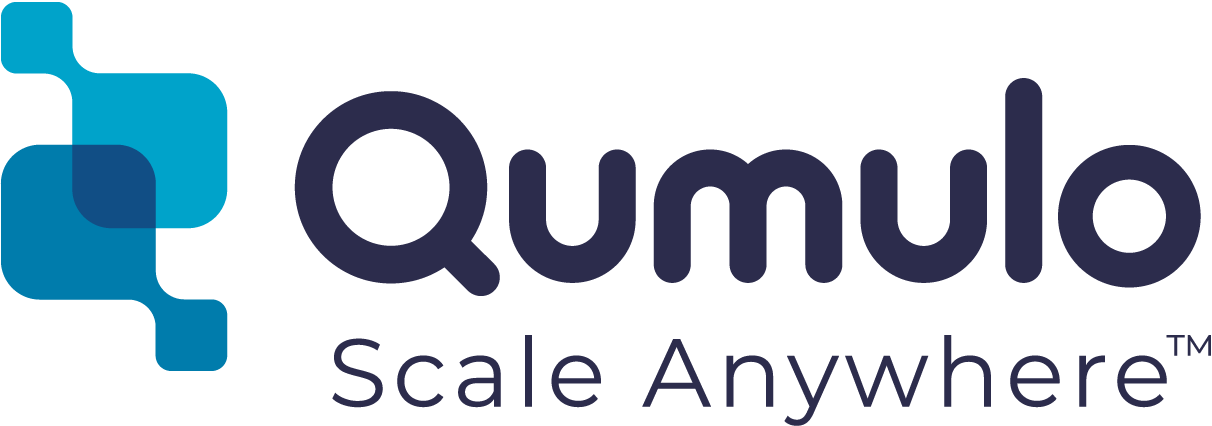Something that new hires in any company excel at is gauging the difference in company culture from whatever they had expected or experienced in previous roles. After starting a new position, it can be a wake-up call for new employees to find out that the way a company’s values or mission were described in the interview process, might not necessarily translate into reality once they start the job.
Following is an audit that I conducted with a team of fresh-eyed and bushy tailed recent engineering new hires here at Qumulo. The audit’s goal was to identify how respected, animated, and embodied the Qumulo Values and Qualities really are (Pssst for current engineers – this is an ode to integrity, an elaborate kudos, and a thank you note, because based on these interviews, you’re doing it right!).
Backstory: During my interview loops at Qumulo, I was asked behavioral questions to gauge how I’d fit in with the company values. The personal qualities that the company purportedly cared about were listed on a sheet of paper. Some jumped out at me:
- We share by default
- We do the hard, right thing
- Our engineers… are collaborative, are problem solvers, are adaptable, act as an owner, get shit done, are curious and always learning
And the things people said when answering my questions also *sounded* nice:
- We have unlimited PTO so that engineers can show up refreshed, boosting productivity and people’s investment in the product
- Everyone’s friendly and is willing to answer questions at any time
- Engineering has a relatively flat hierarchy, which forces us to be proactive and take the reins on jobs that a manager would normally do. The ownership and flexibility that self-management adds is really nice.
I was promised a collaborative environment of pair programming and a set of excellent, effective Agile development practices. I accepted the offer.
And in the back of my mind, I was skeptical. How often do companies say that they act by certain principles, and in reality simply post them on a wall and then ignore them, never referencing them in daily work!?
In the past, that ended up looking like over-busy mentors, lifeless hallways, and hitting my head against the wall when working alone. A running thought that I had was “Really now, can being a software engineer ever truly feel collaborative if there’s only one person ever directly typing the code?”.
We’ve perused the grapes. Let’s fast forward to our team audit, and taste the wine that they blended into.
One of Qumulo’s values is that the company “builds a team of people we’re proud to know.” Jill Bender, a Software Member of Technical Staff (MTS), felt this on day one, when she was immediately treated like she was part of the team. She stated, “Everyone believed in me, and assumed that I was capable. It was surprising, and got me to quickly believe it myself :)”
Cecilia Garcia Martin, a Hardware MTS, described it as, “My team just accepted me. There were no weird interactions about dress code, my experience level, or my sexual orientation. I haven’t needed to upkeep some facade – I have been able to be 100% myself. Day-to-day, this lets me totally focus on my work. And the quality of the work we do is better because of it.”
Let me just say – it is so nice to wear whatever I want to work without first jumping through the mental hoops of whether or not I’ll be judged. Sometimes I dig flowery summer dresses, or colorful scarves, or parachute pants. Someone else might wear a suit jacket, or a felt hat, just because they felt like it. And nobody will give them a sideways glance. We implicitly respect and support each other, with the effect that people are happy and comfortable when present in the office.
Qumulo builds the team first so that we can layer good work on top of it. As Cecilia said, “We’re doing work, but we’re enjoying the work we’re doing. The culture makes it so that you’re not too busy or too worn out to say hi.”
By extension of the warm, relaxed welcome that one receives at Qumulo, you don’t have to be afraid to jump in or ask questions. During the company’s All Hands meetings, the VP’s are not unreachable. During sprint review, my voice is respected by stakeholders whenever I have something to say. Seniority doesn’t matter if you’re bringing up a good point.
Aki Namioka, an Agile Coach, noted how often she sees mature and respectful conversations happening even in cases where people disagree with each other. There’s a willingness to listen to others’ suggestions, and a drive to reach consensus, such that everyone ends up on the same page.
This leads into one the Qumulo values I was most excited about: “We share by default.” I love the extra brainspace I get when I don’t have to hedge, filter, and keep secrets. Admin-wise, this looks like documentation and design proposals being laid out with the intention of being transparent. Departments are told about each other’s progress and celebrate each other’s successes. Engineers are encouraged to give each other authentic, generous feedback on a daily basis; the CFO candidly shares his thoughts in All Hands; and a ton of fun Slack channels exist where people connect around their shared interests. The culture of being open is tangible, and is backed by people taking responsibility for the impact of their voice, and the way their message lands.
Regarding the value “Customers are Our Magnetic Field,” Jill shared that there’s a huge sense of shared accountability on her team, with a continuous drive oriented at customer delight. “Our two week release cycle has us being consistently agile, not holding things back, and pushing the envelope on progress. We solve difficult problems but it’s done sustainably, in iterative, manageable chunks. We gradually build up to impressively large solutions, and there’s a strong sense of it being a team sport,” she says. On this theme of of goal-oriented teamwork, Cecilia added that she “can rely on her teammates’ word. If anyone says they’ll get something done, they’ll do it punctually and do it well.”
To me, it is soothing and straight-up inspiring to work in an integrous environment, where anxiety and mistrust are considered neither conducive nor essential; where I’m treated fairly and respectfully, and held to a high bar because people want me to grow and succeed. Pardon my melodramatics, but the difference that this foundation makes is well worth the hype.
If, so far, we’ve been covering mostly relationship-related values, let’s move on to some that affect the specific way we go about working on Qumulo’s product.
Conner Hansen, a Software MTS, is on a team that’s tearing out a fundamental hardware assumption that the Qumulo File System (QFSD, ‘D’ standing for Daemon) used to have. It used to be acceptable, and now it’s not. When I asked him how he sees the Qumulo qualities being realized in his work, he answered that he’s surprised how in-depth and high quality this code refactoring actually is. Instead of ignoring portions of old code, or brushing up how they look from the outside, Conner’s teammates actively explore the legacy code. None of them wrote it originally, and yet they are taking full responsibility when pruning it now, determined to leave it in a better state than they found it. Overall, this seems quite mature and graceful of them.
Jill followed up with the observation that whenever people bring up issues that they’ve noticed, either in the code base or in the product at large, there is follow-through. They’ll say “I see this problem and I’m going to do X about it.” Talk about “Acting as an owner” and ‘’We get shit done”! I love the fact that there is very rarely empty whining without actionable followup.
Rowan Phipps, a Software MTS, noted that it’s like a breath of fresh air to collectively own the health and quality of the code base. Projects frequently touch code across the breadth and width of the code base – there are no portions that are “off limits” or owned by some specific, oligarchical team. You don’t have to ask past owners for permission to implement something new. Instead, the goal is to write all code so simply and with such deep test coverage, that any newcomer can be clear on what should and shouldn’t be touched.
Robby Marver, a Software MTS, added that since everyone is working as an owner, people never feel satisfied with “good enough.” The effect is that my coworkers are excited for the improvements happening around them, and actively root for each others’ success.
Regarding the qualities of “Being Adaptable and Curious,” Rowan mentioned how happy he is with the fact that teams routinely rotate between different levels of the software stack. The team that’s dubbed the “cloud team” for six months will turn around and work on protocols, or networking, or performance, etc., once their particular mission is complete. This seems like such a rare find in terms of company culture. It imparts a startup-y energy, with everyone working on the relevant, top priority missions. It spreads around expertise; keeps coding patterns consistent across the code base; and grants engineers a deep understanding of how the product works overall.
Engineers are also given the opportunity to rotate between teams, in order to explore new fields that interest them. Jill, who recently switched teams, marveled at how easy that transition was, and noticed that people not siloed in specific “expertise bubbles” are more likely to try on technologies or dev practices that trickle in from the outside dev community. She noted, “Everybody seems to try new things regularly. People aren’t stuck on the idea that there’s a small circle of acceptable ways to do things, and encourage each other to try new things and stay engaged, intent on continuing to learn.”
So there we have it! My audit participants did not let me down. And in fact, here’s a huge kudos to all current Qumulons for enacting the Qumulo values SO clearly, that they’re evident to new hires walking in the door. The values are ingrained in our daily work lives, and they bubble up in every setting in the office. They’re uplifting and make the community “just work.” I applaud you and thank you so very much. It’s been a worthwhile endeavour for us all to put our energy into.


